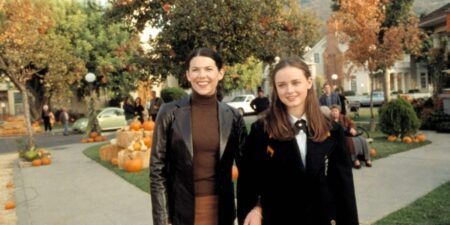More than three decades ago, Warren Buffett introduced Bill Gates to the book that would change the way he thinks about doing business.
His recommendation, John Brooks’ 1969 essay collection “Business Adventures,” had been out of print since the ’70s, but the Microsoft founder didn’t let that deter him from devouring the compilation of cautionary tales and success stories from the world of Wall Street.
“Brooks’ work is a great reminder that the rules for running a strong business and creating value haven’t changed,” Gates wrote in 2014.
If you want to succeed in business, executives like Gates suggest you’ll find valuable guidance in books. Gates has said he reads about 50 books a year, the vast majority of which are memoirs and educational works about environmental science, public health, and finance. Buffett, too, is an avid reader who’s recommended Benjamin Graham’s “The Intelligent Investor,” among other Wall Street-favored instructionals. Some powerful people in business have also evangelized the benefits of reading to their staff: Jeff Bezos reportedly required his senior managers at Amazon to read nonfiction books about time management and innovation.
The books most frequently recommended to aspiring business leaders tend to have one thing in common: they’re nonfiction. Last year, when Business Insider compiled a list of 20 books loved by powerful executives, only one was a novel.
But some experts and book-loving CEOs say the dearth of fiction on many business leaders’ bookshelves — and particularly on men’s — is a missed opportunity for growth. Having leaders who actively engage their imaginations, they say, helps sharpen vital soft skills that can help a budding CEO take their career to the next level.
“It’s not just a cultural issue,” said Tess Pawlisch, the founder and CEO of a communications agency and an avid reader of both fiction and nonfiction. “It is actually a leadership one.”
Imagining a better workplace
Though fiction by definition encompasses the world of made-up stories, the genre has more to offer than pure entertainment. Researchers have found that literary fiction can improve our people skills, making it easier to empathize, read emotions, and adapt to social cues.
Joseph Badaracco, professor of Business Ethics at Harvard University, teaches an elective called “The Moral Leader” that tasks MBA students with reading and discussing works of fiction. Though his syllabus has gone through many iterations over the past two decades, he said one thing remains constant: Students emerge with “a much more realistic sense of life.”
“Cumulatively, I think they do broaden and deepen your understanding of people and yourself and situations,” Badaracco said of the works of fiction he assigns in his class.
Beyond research labs and classroom walls, the benefits of reading fiction have seemingly been eclipsed by optimization culture. People don’t want a laborious search for meaning; they want step-by-step instructions and immediate results.
Pawlisch said she hears the same titles suggested to aspiring entrepreneurs ad nauseum: Robert Greene’s “The 48 Laws of Power,” Dale Carnegie’s “How to Win Friends and Influence People,” Stephen R. Covey’s “The 7 Habits of Highly Effective People,” and James Clear’s “Atomic Habits,” all of which are also sitting on her bookshelf.
While these kinds of books push readers to refine their own routines, skills, and goals — all useful suggestions, to be fair — Pawlisch said that when it comes to managing a team or steering a company through murky economic waters, focusing solely on self-improvement won’t cut it. Her job also requires her to think about what other people want and need — not just her employees, but shareholders, clients, and consumers, too.
“If you’re only consuming the media that mirrors your own identity, you’re really losing the ability to connect across lines.”Tess Pawlisch
“A lot of these business books have similar ideas,” Pawlisch told me. Not only that, but they tend to be written by the same kind of person: white, college-educated men from stable to prosperous socioeconomic backgrounds. In other words, these are books written by and for people with similar access to resources, capital, and, ultimately, power.
“That can be very limiting in a business setting, especially when you’re looking at who’s going to be a part of your team, or who you’re selling to,” Pawlisch said. “If you’re only consuming the media that mirrors your own identity, you’re really losing the ability to connect across lines.”
On the flipside, when Pawlisch reads a novel like her longtime favorite, Isabel Allende’s “The House of the Spirits,” she feels like she’s discovering something new.
“Fiction builds the muscle memory for nuance, contradiction, imagination,” Pawlisch continued. “The people who are writing fiction, and the stories they’re writing about, will give you perspectives that are completely outside of this bubble, this echo chamber, that we’re all existing in within corporate America.”
That Pawlisch is an avid fiction reader shouldn’t come as a shock; women dominate the current fiction market, both as readers and authors. National surveys consistently show that women are more likely than men to say they read fiction often, and more likely to say they’ve read a novel or short story in the past year.
But despite making up over 50% of the US population, women are underrepresented in the highest echelons of the corporate world: They make up just 10.4% of CEOs at Fortune 500 companies. The data points to an obvious disconnect: the people most likely to read fiction and reap the business-minded benefits are rarely the ones holding the top jobs.
Reading fiction has many leadership benefits — it just needs a rebrand
Not all men are missing out. When I began asking professionals to share insight into their bookshelves, I expected to hear from businesswomen with Goodreads accounts, perhaps even enthusiastic BookTok scrollers.
I did not expect to hear from over a dozen successful men across industries — including marketing executives, college professors, tech entrepreneurs, and one employment attorney — who told me that reading fiction has sharpened their ability to communicate in meetings, network with charm, deliver difficult feedback without discouraging staff, and even detect slumps in company morale.
“Men who read fiction are simply better at reading people,” Jordan Geary, an Emmy Award-winning creative producer and longtime TV executive, told me. “It’s like leg day for your soul.”
Geary, who told me he’s enjoyed reading everything from “The Count of Monte Cristo” to “The Devil Wears Prada,” credits fiction with stretching him socially and creatively.
“Men who read fiction are simply better at reading people. It’s like leg day for your soul.”Jordan Geary
“Men, conversationally, have become robots, and I think it’s because they’re flocking to this nonfiction stuff that reads like instruction manuals,” Geary added. “It’s like, ‘First you do this, then you do this, then you do this, the end.’ There’s no creativity, there’s no mystery, there’s no adaptability asked of you or anybody.”
Ricardo Fayet, cofounder and CMO of the online publishing hub Reedsy, said the epic fantasy books he reads for fun often feature complex leaders and high-stakes situations that inform his own decision-making as a manager. Yet in both his personal and professional life, he’s found these types of books are trivialized as vehicles for escapism — as a pastime that isn’t “productive” — rather than a useful looking-glass for real-world dilemmas.
“Fiction is always presented as an escape from the horrible world that we live in,” Fayet said. “We don’t talk a lot about the life lessons that you learn in fiction.”
Pawlisch echoed his observation. “There’s this notion that serious people read nonfiction, while fiction is just seen as indulgent.”
It’s not that novels are devoid of important themes and lessons; it’s that their value is usually not packaged in direct, easy-to-memorize ways that appeal to a productivity-obsessed workforce. What these books need is a reputational rebrand.
“Great leaders aren’t data dumpers. They’re storytellers.”Jordan Geary
“If we ask a fiction reader, ‘What life lessons did you learn from your last book?’ It’s a hard question to answer,” Fayet explained. “When you read a nonfiction book [about] five ways to make friends, then you have a recap list with tip one, tip two, tip three, tip four, tip five. And so you’re able to recite that at the end of the book. But it maybe doesn’t enter your subconscious as much as fiction.”
Indeed, research has shown that rote memorization is ineffective and superficial compared to more interactive, immersive learning methods that promote retention, recall, and critical thinking. A 2020 article published in the British Journal of General Practice titled “Reading fiction: the benefits are numerous” noted that people “remember facts better when woven into a narrative.”
For many fiction readers, the value lies not in isolated facts but in the relevant themes and moral dilemmas that shed light on the human experience. Geary, the TV executive, told me that re-reading Michael Crichton’s 1990 novel “Jurassic Park,” a childhood favorite, hit differently during a time when he was overextended at work.
Though Geary’s job may not involve reanimated dinosaurs, he related to the book’s fictional entrepreneurs’ belief that they could manage and contain every detail of their theme park, famously to their detriment.
“I’m reading this book at the same time that I’m working on six TV shows at the same time, and I was banging my head against the wall trying to figure out how to make everything work perfectly,” he explained. “It made me just say, ‘Oh, there’s so much chaos. There are so many moving parts, I can’t control everything.’ And it really helped me out. It just lowered my blood pressure and made me a better executive.”
He believes the ability to envision a different reality, probe the psyches of other people, and consider complex solutions to complex problems are skills that distinguish the number crunchers from the visionaries.
“Great leaders aren’t data dumpers,” Geary said. “They’re storytellers.”
Read the full article here
















